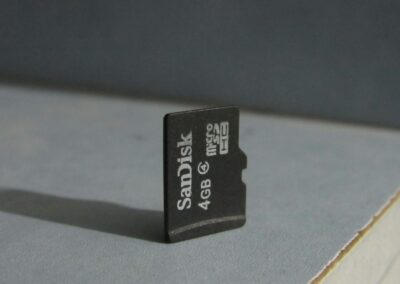Implications for Scalability and Performance of IoT Deployments
The Role of Data Aggregation and Filtering in IoT Systems
Ensuring effective data aggregation and filtering in IoT systems is essential for enhancing both scalability and performance. As the adoption of IoT technology continues to grow, particularly in forward-thinking regions like Saudi Arabia and the UAE, the ability to manage vast amounts of data becomes increasingly critical. In cities such as Riyadh and Dubai, where smart city initiatives and industrial IoT applications are burgeoning, data aggregation and filtering are key processes that enable efficient data management. These processes help streamline the influx of data from various IoT devices, ensuring that systems remain responsive and scalable as they expand.
Enhancing Scalability with Data Aggregation
Data aggregation plays a pivotal role in enhancing the scalability of IoT deployments. By combining data from multiple sources into a unified dataset, businesses can reduce the volume of data that needs to be processed and transmitted. This aggregation not only minimizes bandwidth usage but also simplifies data management, making it easier to scale IoT systems. In high-growth areas like Riyadh and Dubai, where IoT deployments are rapidly expanding, effective data aggregation allows for the seamless integration of new devices and sensors. This capability is crucial for maintaining system performance and ensuring that IoT networks can grow without encountering bottlenecks or performance degradation.
Improving IoT Performance through Data Filtering
Data filtering is another essential process that significantly improves the performance of IoT systems. By selectively processing relevant data and discarding unnecessary information, data filtering ensures that IoT systems focus on critical insights and actions. This targeted approach enhances the efficiency and speed of data processing, leading to more responsive and effective IoT deployments. In dynamic environments like those in Saudi Arabia and the UAE, where timely decision-making is crucial, data filtering helps businesses maintain high levels of performance. For instance, in industrial IoT applications, filtering data from machinery sensors can help identify anomalies and optimize maintenance schedules, thereby improving operational efficiency and reducing downtime.
Challenges of Implementing Data Aggregation and Filtering in IoT
Despite their benefits, implementing data aggregation and filtering in IoT systems comes with challenges. One significant challenge is ensuring data integrity and accuracy during the aggregation process. Aggregating data from diverse sources can sometimes lead to inconsistencies or loss of crucial details. To address this, businesses must adopt robust data validation and integration techniques. In regions like Riyadh and Dubai, where IoT networks are extensive, ensuring data quality is paramount. Additionally, data filtering requires sophisticated algorithms and processing power to effectively analyze and filter relevant data in real-time. Investing in advanced analytics platforms and edge computing solutions can help overcome these challenges, enabling businesses to fully leverage the benefits of data aggregation and filtering.
Case Studies: Effective Data Aggregation and Filtering in Action
Several case studies highlight the impact of effective data aggregation and filtering on the scalability and performance of IoT deployments. For example, a smart energy management project in Dubai utilized data aggregation to consolidate information from various sensors and smart meters. This approach allowed the city to efficiently monitor energy usage patterns and optimize distribution, resulting in significant energy savings and improved system scalability. Similarly, an industrial IoT deployment in Riyadh employed advanced data filtering techniques to process real-time data from manufacturing equipment. This enabled the company to detect equipment anomalies early and perform predictive maintenance, leading to enhanced production efficiency and reduced operational costs.
Conclusion: The Future of Data Aggregation and Filtering in IoT
As IoT technology continues to evolve, the importance of data aggregation and filtering for the scalability and performance of IoT deployments will only increase. In technologically advanced regions like Saudi Arabia and the UAE, where IoT applications are integral to smart city and industrial initiatives, implementing effective data management strategies is essential. By adopting robust data aggregation and filtering techniques, businesses can ensure their IoT systems remain scalable, responsive, and efficient. This approach not only enhances operational performance but also drives innovation and growth in an increasingly connected world, setting a strong foundation for future IoT advancements.
—
#IoTDataAggregation, #IoTDataFiltering, #ScalabilityOfIoT, #IoTPerformance, #IoTDeployments, #SmartCities, #DubaiTech, #RiyadhInnovation, #SaudiTech































